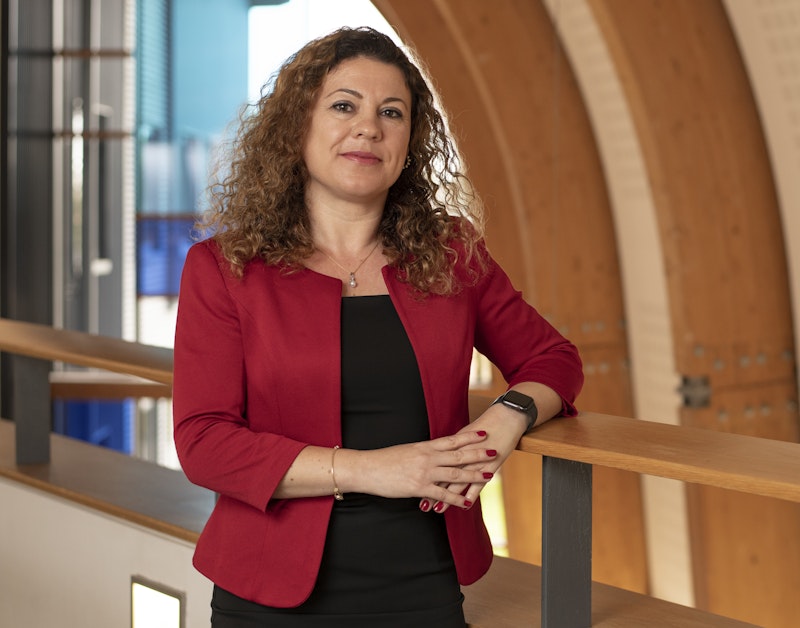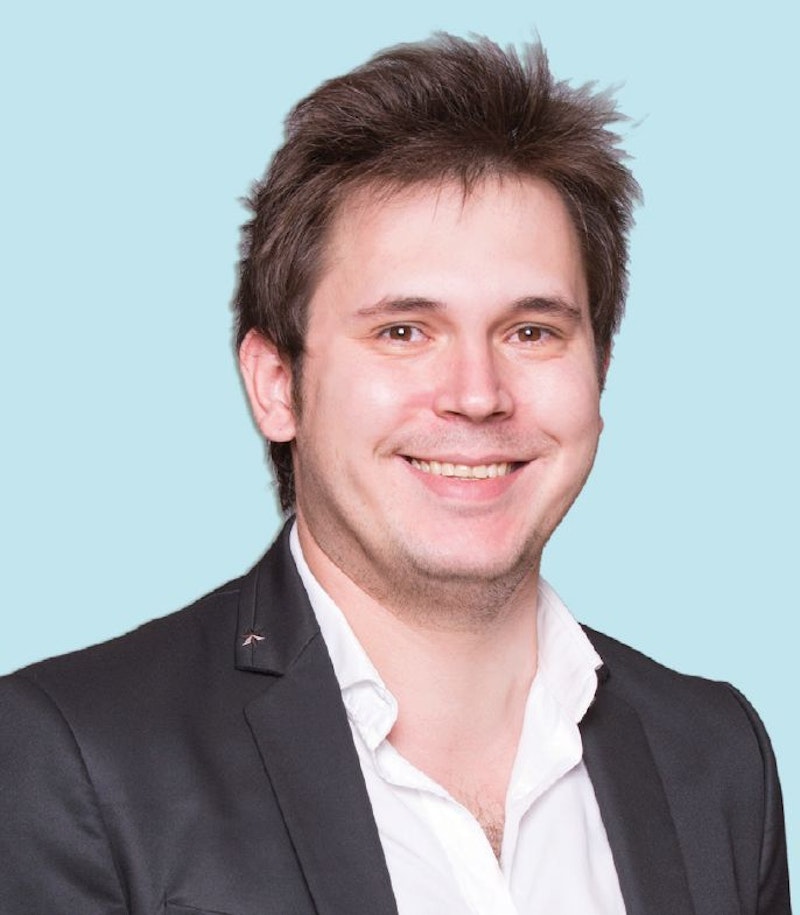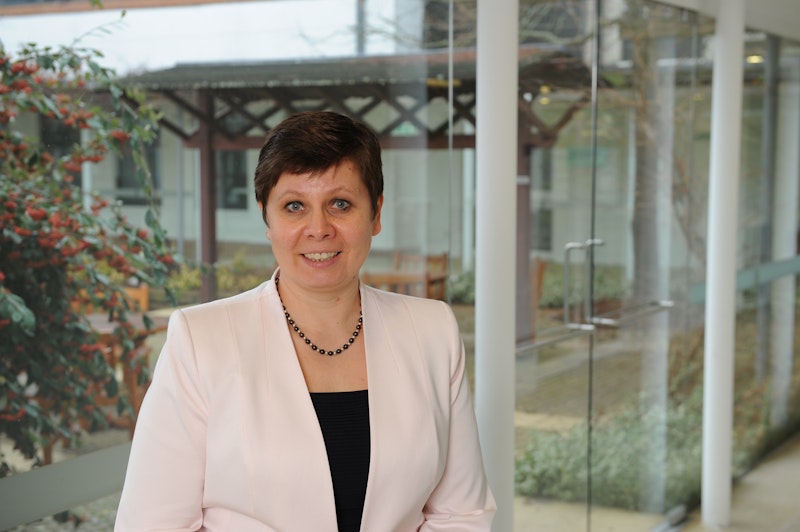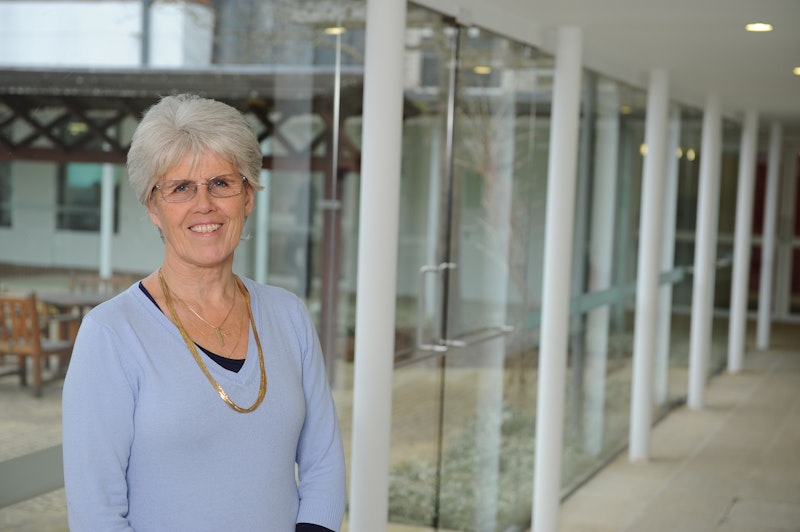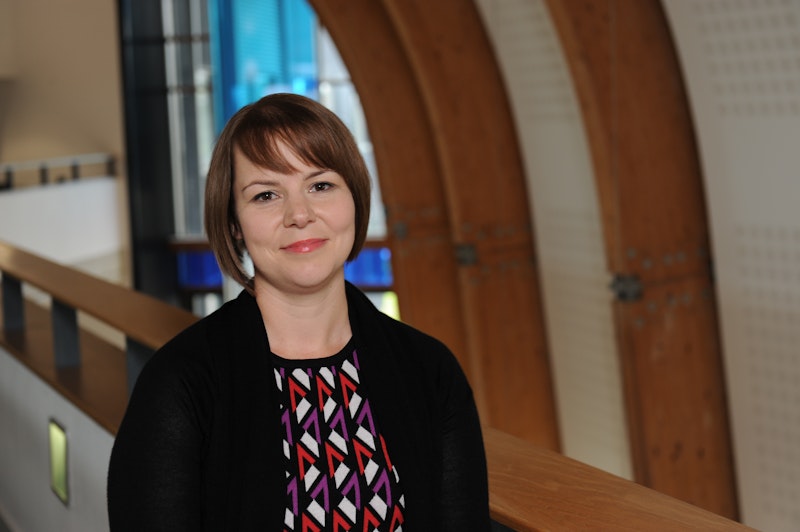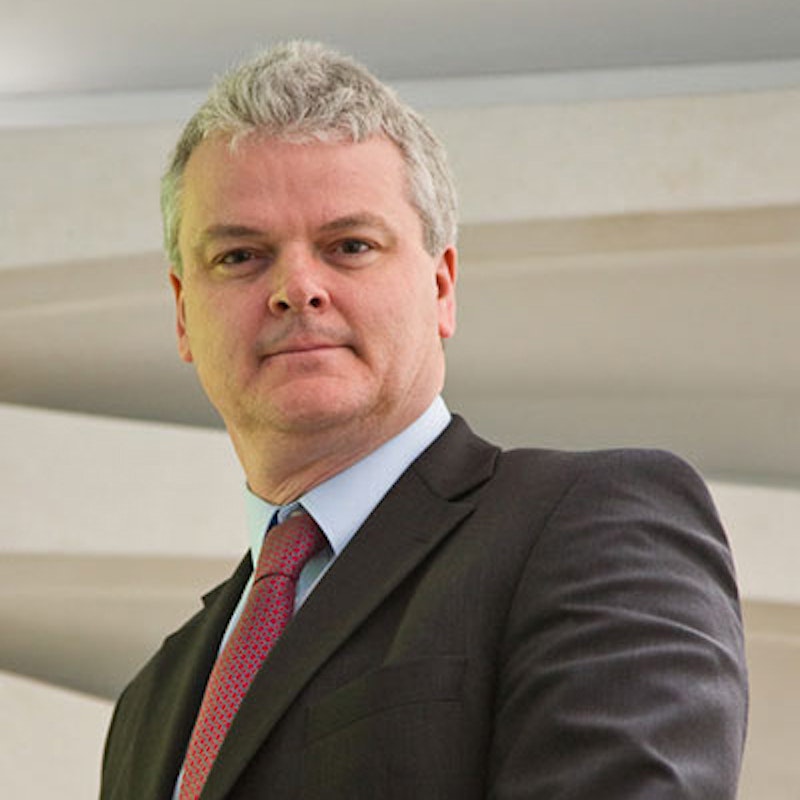

Leadership, Organisations and Behaviour PhD Opportunities
In this PhD programme, you will undertake original research that is timely and business relevant in the area of Leadership, Organisations and Behaviour.
At a glance
- Benefit from a dynamic research environment and dedicated support
- Join postgraduate research students from all over the world
- Engage with executive leaders and the practitioner community
- Programme features personal development modules and workshops
- Research driven by a number of leading centres within the department
- Locations
- Henley Whiteknights
- Subject area(s)
- Leadership
- Duration
- 3 years
- Attendance
- Full-time
- Programme Director
-
 Dr Anastasiya Saraeva
Dr Anastasiya Saraeva
Overview
The PhD in Leadership, Organisations and Behaviour, based in the school of Leadership, Organisations, Behaviour and Reputation (LOBR) at Henley Business School (University of Reading), is designed to develop scholars capable of conducting original and impactful research in these interconnected fields. The programme encompasses a broad spectrum of topics, including leadership dynamics, organisational behaviour, business ethics, human resource management, management learning and development, knowledge management, careers and employability and social and organisational studies.
The programme emphasises formal research training, with PhD candidates undertaking advanced modules and training in their first year to develop robust analytical and methodological skills. This foundation supports the pursuit of original research tailored to individual interests within the broad spectrum of Leadership, Organisations and Behaviour. The PhD journey includes a confirmation of registration in the second year, where researchers present and defend a fully developed research proposal. The subsequent time is dedicated to completion of the research and writing of the thesis, culminating in a viva examination. Throughout the programme, researchers benefit from personal development modules and workshops aimed at enhancing their research capabilities and professional skills.
Researchers benefit from the expertise of several research centres within the department, such as the Henley Centre for Leadership, the Centre for Business Ethics and Sustainability and the Centre for Euro-Asian Studies. These centres, alongside Henley Business School's long tradition of advancing business education research, provide a rich environment for scholarly engagement, offering access to cutting-edge research and opportunities to participate in international conferences that examine the latest developments in the field.
Throughout their studies, PhD candidates receive dedicated supervision from internationally renowned faculty, benefit from outstanding facilities and are part of a dynamic research community. The programme's comprehensive approach equips graduates with the critical thinking, intellectual capacity and creativity necessary for successful academic or professional careers in leadership, organisational behaviour and related fields.
The module descriptions set out on this page are correct for modules being taught in the current academic year. Optional module listings are indicative and may be subject to change.
Year One: You will have to attend modules examined according to Henley Business School rules. These modules include research methods and other areas required for your area of concentration.
Confirmation of Registration: In your second year, you will present and defend your fully developed research proposal, consisting of a substantive document of around 10,000 words.
Years Two and Three: The remaining part of your PhD studies will be devoted to complete your thesis before your viva examination. The maximum amount of time you are allowed before the viva examination is four years of full-time study.
Year One
During your first year of studies, you will be required to:
- Attend and obtain at least 60 credits from PhD/Masters level modules in research methods and other relevant areas (see below)
- Attend some short courses (2-3 hours each) required for the Reading Researcher Development Programme at the Doctoral and Researcher College (overseeing PhD studies within the University of Reading)
- Attend the Preparing to Teach training programme (which is necessary to be able to complete any teaching-related activities within Henley Business School)
- Participate in weekly research seminars organised by your department and others relevant to your area of interest
- Hold regular meetings with your supervisor(s).
Required taught component
All LOBR first year students are expected to take the following modules:
A 20 credit module focusing on literature review – generally we recommend Introduction to Thesis Literature Review (MMD001), but Understanding Management and Financial Research (ICM116) is an acceptable alternative for students looking to focus on quantitative stream
A 20 credit module in Advanced Qualitative Methods (MMD002), blended with the Advancing Academic Practice Programme
A 20 credit module Pedagogy Seminar (MMD012)
If you are interested in the module description form containing the overall learning outcomes and description of the modules, please visit this link (click on the most recent academic year and then on Henley Business School; modules are listed by code in alphabetical order).
| Compulsory modules | Credits |
|---|---|
Advanced Qualitative Research Methods (MMD002)The module aims to deepen students’ understanding of qualitative research, particularly in the areas of business, organisational, social and management studies. Academic authors
Professor Jane McKenzie

Professor Ruth Sealy
|
20 [10 ECTS credits] |
Pedagogy Seminar (MMD012)Through taking this module, students should gain a greater insight into contextualising language learning, updating notions of pedagogical achievements and challenges in business learning and providing pedagogical information and tutorial plans on selected business topics. Academic authors
Professor Yelena Kalyuzhnova
|
20 [10 ECTS credits] |
| Optional modules | Credits |
|---|---|
Introduction to Thesis Literature Review (MMD001)The module aims to provide students with an understanding of all the issues involved in researching, preparing and writing a literature review for their thesis, together with the specific techniques and resources involved. Academic authors
Professor Peter Scott
|
20 [10 ECTS credits] |
Understanding Management and Financial Research (ICM116)This module aims to equip new PhD students with a clear understanding of the necessary requirements for obtaining a PhD at Henley Business School and at the ICMA centre. Academic authors
Professor Michael Clements
|
20 [10 ECTS credits] |
After 15 months from the start of your PhD you will submit a substantive research proposal of approximately 10,000 words that will be defended in front of faculty members and/or assessed by independent examiners. This process will coincide with your confirmation of registration and, if successful, it will grant you the status of PhD candidate.
The research proposal will be a significant development of the initial proposal you submitted for your application. It will include material you may have produced during the first year modules in research methods (e.g. literature review, methodologies, data description). If you plan to do a PhD thesis combining three papers, you are expected to include a draft of the first paper in your research proposal. Alternatively, if you intend to use a book-like structure for your thesis, the document should include the draft of at least one of the three/four key chapters.
Years Two and Three
During your second and third years, PhD students are expected to:
- Continue to work on your PhD dissertation drafting the other two papers/key chapters;
- Hold regular meetings with your supervisor(s)
- Attend some short courses (2-3 hours each) required for the Reading Researcher Development Programme at the Doctoral and Researcher College
- Participate in weekly research seminars organised by your department and others relevant to your area of interest
- Contribute to departmental teaching/research activities and events
- Present posters/papers at national/international conferences.
Modules or course content marked as optional are indicative and may be subject to change. Please note, constraints in timetable scheduling may mean you are unable to take some optional modules at the same time as others.
For fees, please visit the Doctoral and Researcher College website.
Overseas applicants should refer to the non-laboratory based fees listed in the tables (International Band 1 for non UK/Home students).
PhD funding
Up to three postgraduate studentships, each covering full course fees and a stipend, are available for outstanding applicants wanting to conduct full-time postgraduate research in the research areas listed below.
These awards are offered on an annual basis and are renewable at the end of each year, subject to satisfactory performance, for up to three years. In particular, we are looking for PhD candidates with excellent potential in the areas of entrepreneurship, social and organisation studies, moral agency and business ethics and leadership and non-market related strategies. Students with an interest in these thematic areas within our research centres are invited to apply.
There are potentially two additional studentships, which all Henley Business School PhD applicants studying full-time are eligible for. The application process is handled by the department of Leadership, Organisations, Behaviour and Reputation's Postgraduate Research Director, who will nominate the best applicants for review by the Henley Business School Postgraduate Research Director.
Further PhD funding options
- Wilkie Calvert Scheme: This funding is available for PhD applicants that are undertaking research on a part-time basis, with their research being of strategic importance to their employer. For further information, please visit the Doctoral and Researcher College website.
- International PhD studentships: This funding is available for PhD applicants from outside the UK. For further information, please visit the Doctoral and Researcher College website.
- Regional PhD bursaries: This funding is available for PhD applicants that are residents of Reading and the surrounding area. The scheme is not open to students who have already started their study at the University of Reading. For further information, please visit the Doctoral and Researcher College website.
- Graduate: If you have already studied at the University of Reading or Henley Business School, you will be eligible for the alumni fee discount.
- South East Doctoral Training Arc (SEDarc): This funding is available for PhD applicants with a focus on research in the areas of living sustainably healthy, thriving communities, inclusive economic growth, secure, effective and trusted institutions and transformative technologies for society and is offered by the Economic and Social Research Council (ESRC). For further information, please visit the Doctoral and Researcher College website.
- China Scholarship Council: This funding is available for Chinese applicants that are permanent residents in China at the time of applying. For further information, please visit the Doctoral and Researcher College website.
- Other: For information on further opportunities, please see the find funding section on the University website and the additional options outlined on the Doctoral and Researcher College website.
Important information for applicants for studentships
We offer PhD scholarships covering fees and stipend for up to three years, awarded on the basis of outstanding academic merit to the applicants with the highest quality research proposals.
Applicants for studentships are expected to have obtained or be expecting to obtain a Distinction in their Masters degree and in their Masters thesis. MBAs are not considered. Applications for studentships are very competitive and students are further assessed on their ability to speak and communicate in English. Studentship holders may be instructed to engage in teaching assistant duties (up to seven hours per week) from their second year in the programme.
Applicants that are considered for the studentship will need to go through an interview with the Postgraduate Research Director for the department of Leadership, Organisations, Behaviour and Reputation.
Studentship applications for the 2026/27 academic year are open and will close on 2 March 2026. Applicants who apply before this date will have their applications considered and those with the strongest research proposals will be invited to interview.
For further information on studentship requirements, please contact the Postgraduate Research Administrator for Leadership, Organisations, Behaviour and Reputation.
Current scholarships
Applications for the 2025/26 academic year are closed. Applications for the 2026/27 academic year are open and due to close on 30 June 2026.
The key requirements for a successful application are:
- Top grades in your Masters degree (minimum requirement is Merit or equivalent, but we prefer Distinction)
- Top grade in your Masters Dissertation (or equivalent research-based piece of work) because this may show your research attitude and skills
- A well-developed research proposal of at least 6-7 pages where you identify the motivation of your study, place it within relevant literature highlighting the current gap and potential research questions, state your intended methodology and show understanding of the data (if any) necessary to accomplish your study and relevant sources (which will also reveal the feasibility of your study)
- A reasonable intended timeline, reflecting issues you may encounter in the study as presented above (for example, if you have to collect primary data, the time spent on data collection will be much longer than the one you would spend if you intend to use secondary data sources)
- English requirements for applicants whose first language is not English, with the expectation of obtaining either an International English Language Testing System (IELTS) score of 7.0 (with no element below 6.0), a Test of English as a Foreign Language (TOEFL) online test score of 100 (and no less than 20 in Listening, Writing and Reading and no less than 21 in Speaking), or a Test of English for Educational Purposes (TEEP) at the University of Reading with a score of 7.0 (with no element less than 6.0). For all other equivalent score requirements in our accepted English Language tests, please visit the University website.
Please note that all PhD candidates are expected study full-time. It is only in exceptional circumstances that we offer part-time or distance learning PhDs. For part-time or distance options, please instead consider the Henley Doctor of Business Administration (DBA) programme. For this reason, we also do not currently offer an option for January entry.
Applying for a PhD
The process for applying does not follow a linear path that is identical for every student, but the basic steps are as follows:
- Write a research proposal outlining the topic you wish to research. We strongly recommend that you read our guide on writing a research proposal.
- Choose an academic member of staff, listed under Teaching Staff, that has a similar area of research to your research proposal's focus. You can then send your research proposal to them for comment.
- If the academic in question is interested, they will get back in touch with you. It is likely that they will have some questions or suggestions for improving your research proposal. Please note that if you do not receive a response, you must not send your research proposal to all other academics.
- If the academic is satisfied with the proposal, you will be invited to apply. Please note that you can apply before this, but until you have the support of an academic supervisor you will not be able to complete the process.
- Apply by clicking the 'Apply Now' button at the top of this page. Please note that we only accept PhD students starting their studies in September at the start of semester one.
- A shortlisting decision will be made, based on the documents you uploaded in your application.
- If you are shortlisted, you will be invited to a formal interview to assess your suitability to pursue a PhD at Henley Business School.
How can Henley Careers work with you?
We have an award-winning careers team here to support you through your time at Henley and four years after graduating.
Henley Careers and Professional Development run numerous events throughout semester one and semester two in order to help you gain industry experience. These events are aimed to enhance your professional development and network with employers. We also offer one-to-one career coaching appointments where you can talk to a Careers Consultant about your professional development. This may include planning your ideal career journey or building confidence in a particular area. It could also involve practicing for interviews or having your CV checked.
Continuing your career
A PhD in the area of Leadership, Organisations, Behaviour and Reputation can open doors to a successful career in academia and other organisations. This includes large multinationals, leading consulting firms, governmental advisory roles and non-governmental organisations worldwide.
What our students have gone on to do
Our PhD graduates have gone on to take up academic positions at institutions such as Henley Business School, the University of Nottingham and the University of Central London in the UK and Kuwait University, the Australian National University and Imam Mohammad Ibn Saud Islamic University worldwide.
Henley Business School's research in the areas of Leadership, Organisations and Behaviour is driven through the following leading centres: the Centre for Business Ethics and Sustainability, the Centre for Euro-Asian Studies, Henley Centre for Leadership and Henley Centre for Coaching. Many of our research centres have active membership from a wide range of international leading companies providing plenty of opportunity to engage with executive leaders and the practitioner community.
We welcome applicants seeking to conduct full-time postgraduate research in the following fields:
Centre for Business Ethics and Sustainability
- Virtue and integrity theories applied to problems of governance and agency in business, society and critical approaches to management
- Cultural change (in particular industries, or in relation to the business and society relationship at large e.g. globalisation) and the nature of ethical issues arising for individuals and groups, both within organisations and in the organisation and society relationship
- Challenges of ethical pluralism and relativism in relation to context and stakeholder problems
- Morals and the limits of markets; challenges for the common good
- The role of ethics of dialogue in organisations and society; the nature of dialogic ethics and agency
- The role of businesses and international organisations in the development of universal humanistic and eco-centric ethics
- Philosophical topics in organisation studies (especially questions about the ontology of organisations)
- Proposals that use convention theory (sometimes called pragmatic sociology) and apply it to organisations
- Proposals on alternative ways of valuing and prioritisation in general, or with a specific focus on healthcare
- Any topics related to the philosophical foundations of economic thought
- Gender, race and class in the workplace
- Intersectional perspectives on employment and organisations
- Elites and professions
- Professional status and inequality regimes
- Critical perspectives on stress and well-being at work
- Critical perspectives on power in organisations
- Lacanian studies of organisational issues
- Management in cultural and creative organisations, particularly legitimisation strategies and relations within creative clusters
Henley Centre for Leadership
- Distributed leadership in complex professionalised settings and strategies to facilitate its emergence
- Project leadership change management
- Leadership development processes to enable women to access senior positions and break the glass ceiling
- Leadership dysfunction and its effect on organisational culture/wellbeing
- Team leadership, team dynamics and team effectiveness
- Leadership and the facilitation of innovation and creativity within teams
- Exploring organisational leadership capability
- Energising senior management teams
- Developing leadership capacity on the job
- Digital strategic leadership
- Transforming organisations and culture
Centre for Euro-Asian Studies
- Energy economics, with particular reference to oil and gas industries
- Local content policy in resource-rich countries
- Business and economic challenges in Eurasia
- Sustainable development in the Euro-Asian region
Henley Centre for Coaching
- Conditions which need to be in place to make coaching effective with individuals and teams, including how best to train coaches
- Understanding what a coaching culture is and how to effectively manage a coaching culture within organisations, including ensuring the skill of coaches, the quality of coaching and the governance of coaching
- Outcomes can we expect from coaching and how can we evidence them
- How coaching can be used to further social justice and deliver equity, diversity and inclusion
- Use of technology to help us deliver effective coaching now and in the future
PhD Supervisors
Below are a list of potential PhD supervisors that you will be able to contact.
Contact us
For more information please contact Alex Baker.
Email: a.j.baker@henley.ac.ukTelephone: 0118 3788691
“History, location and triple-accreditation led me to choose Henley to pursue my PhD. Grounded in the Thames Valley, I had the opportunity to acquire valuable knowledge being in contact with a dynamic entrepreneurial ecosystem of both academics & practitioners”



